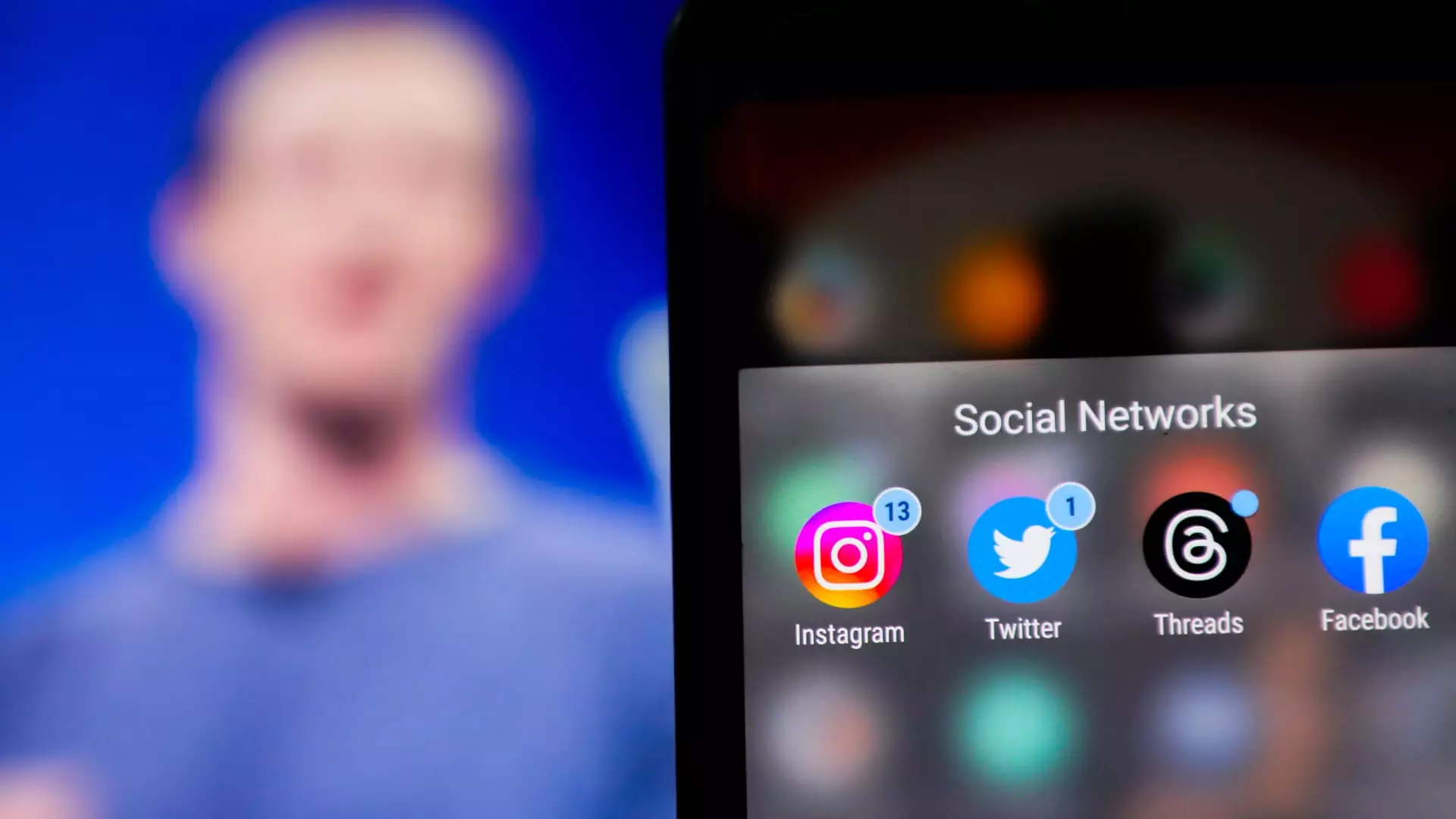In an unexpected twist of events during the ongoing antitrust trial of Meta, revelations regarding CEO Mark Zuckerberg’s internal deliberations have offered a profound glimpse into the high-stakes game of modern tech monopolies. A leaked email from May 2018 suggests that Zuckerberg was contemplating the potential separation of Instagram, raising eyebrows about the extent of pressure big tech firms face within the socio-political landscape. This isn’t merely about corporate strategy—it’s about the very fabric of our digital society and the unchecked supremacy of tech giants.
Zuckerberg’s musings reflect not a fleeting concern but a deep-seated anxiety regarding antitrust litigation. His admission that Meta might be “forced” to spin off Instagram or WhatsApp underscores the turbulent waters ahead for companies that have grown beyond their means. The Federal Trade Commission (FTC), through this trial, is not just targeting Meta; it is posing a broader question: what constitutes fair competition in an age where data monopolies dictate terms of engagement and even social interaction? The transformation of Instagram from a nimble start-up to a cornerstone of a sprawling empire raises critical ethical quandaries that demand scrutiny.
Understanding the Stakes: A Fight Against Monopoly Power
The implications of these revelations extend beyond Zuckerberg’s strategic calculus. They highlight an urgent societal dilemma: the permanence of power held by a few corporations. While Zuckerberg attempts to downplay his influence by citing competition from platforms like TikTok and iMessage, such claims seem increasingly hollow when viewed through the lens of monopolistic practices. The normalization of a few mega-platforms controlling vast swathes of the digital economy reshapes our understanding of choice and competition. Are we truly benefiting from diverse voices, or are we merely dressed in the illusion of choice?
This trial serves as a crucial juncture for redefining what constitutes monopolistic behavior. The FTC’s pursuit to dissect Meta is not merely a punitive measure; it carries the weight of responsibility to safeguard market dynamics against predatory practices that stifle innovation. Zuckerberg’s projection that Instagram might have reached the same size as Twitter or Snapchat had it remained independent reflects a painful irony: what we have gained in user base, we have lost in diversity and innovation.
Beyond the Legal Battle: A Call for Ethical Responsibility
Ultimately, the conversation stretching beyond the courtrooms calls for ethical reflection from tech’s elite. Zuckerberg’s emails expose a fear of regulatory repercussions but also indicate a larger disconnect between corporate ambitions and public accountability. The concept of spinning off portions of a corporate entity in reaction to regulatory pressures is symptomatic of a deeper malaise—a recognition that with great power comes an even greater responsibility to act justly.
In a world evermore influenced by the algorithms and decisions of a select few, we must choose to redefine success. It is not sufficient for Meta to see itself simply as a technology leader; it must strive to embody the ideals of transparency and ethical governance. If big tech is to survive in an era of scrutiny, it must pivot from legacy practices towards a future that prioritizes consumer trust and competition. The stakes are immense, and the balance of power hangs precariously in the hands of leaders like Zuckerberg, whose next moves will shape the digital landscape for years to come.


Leave a Reply